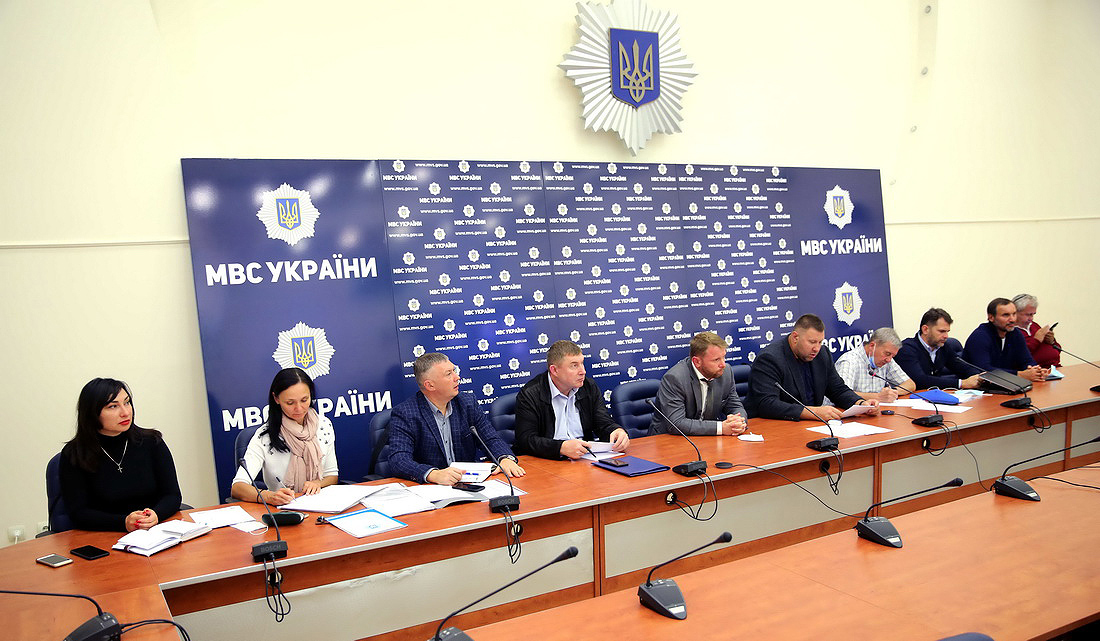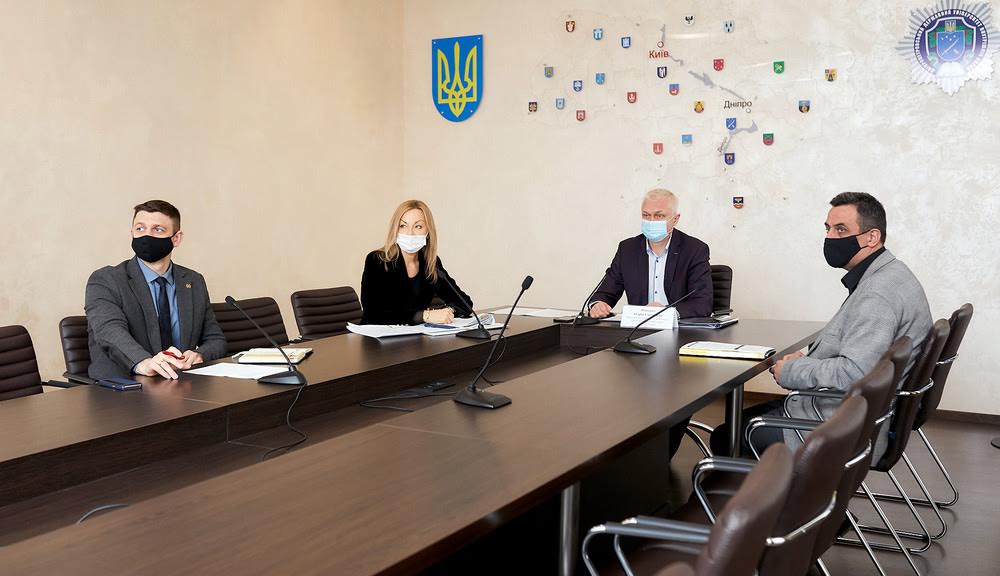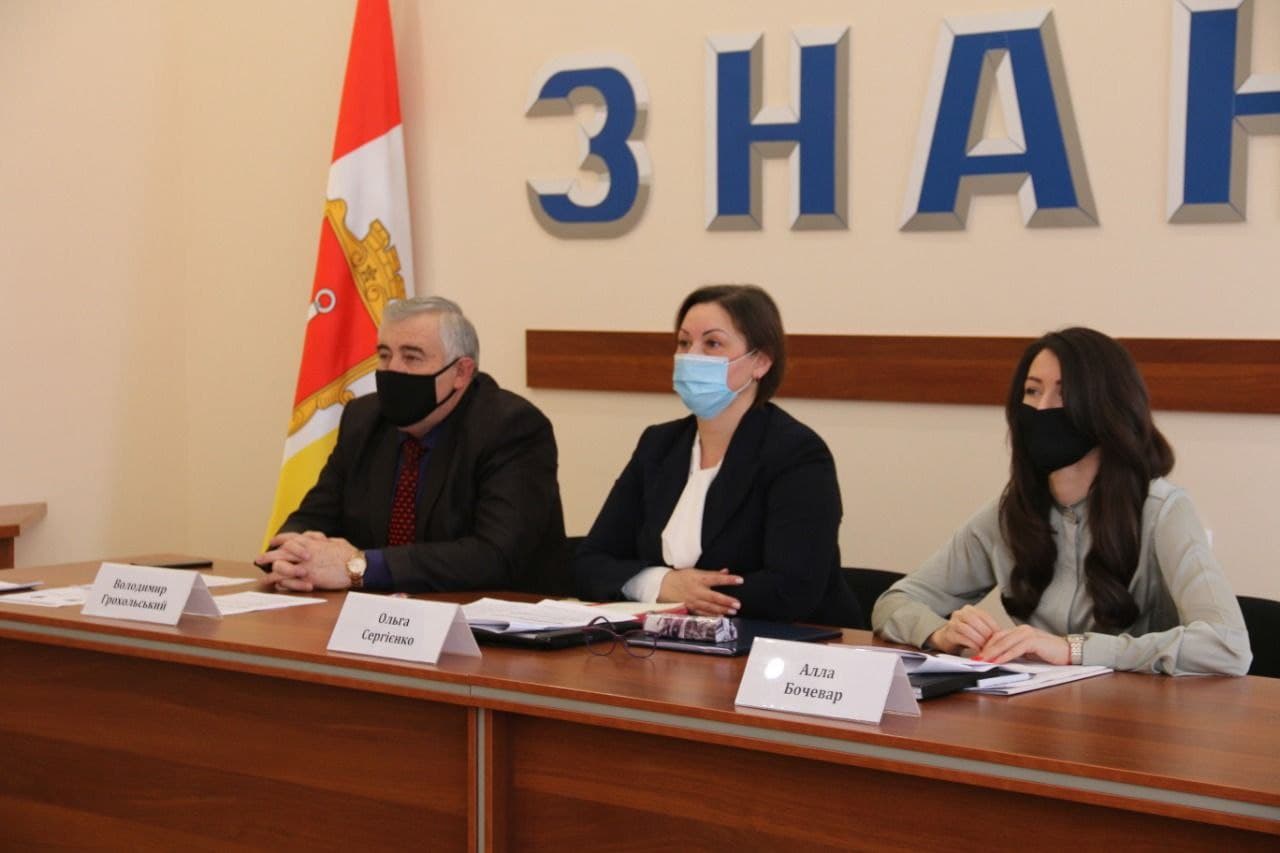At the roundtable in LDUVS, scientists and practitioners discussed the mechanisms of combating corruption in the system of the Ministry of Internal Affairs

Today, May 18, on the basis of the Luhansk State University of Internal Affairs named after. E. O. Didorenko held a roundtable “Determination of corruption risks in the activities of the Ministry of Internal Affairs, ways of preventing and countering corruption in the Ministry of Internal Affairs” in the mode of an online conference.
Co-organizers of the event are the Ministry of Internal Affairs of Ukraine, the Public Council under the Ministry of Internal Affairs of Ukraine, the Public Union “Center for Prevention and Counteraction of Corruption”, Luhansk State University of Internal Affairs named after him. E. O. Didorenko — aimed to discuss urgent issues regarding the conduct of anti-corruption activities in the system of the Ministry of Internal Affairs.
According to Volodymyr Martynenko, Chairman of the Public Council at the Ministry of Internal Affairs, the online event on the basis of LDUVS continues a series of regional round tables held in preparation for the International Scientific and Practical Conference “Implementation of State Anti-Corruption Policy in the International Dimension”, which is planned to be held by the end of the year International Day Against Corruption.
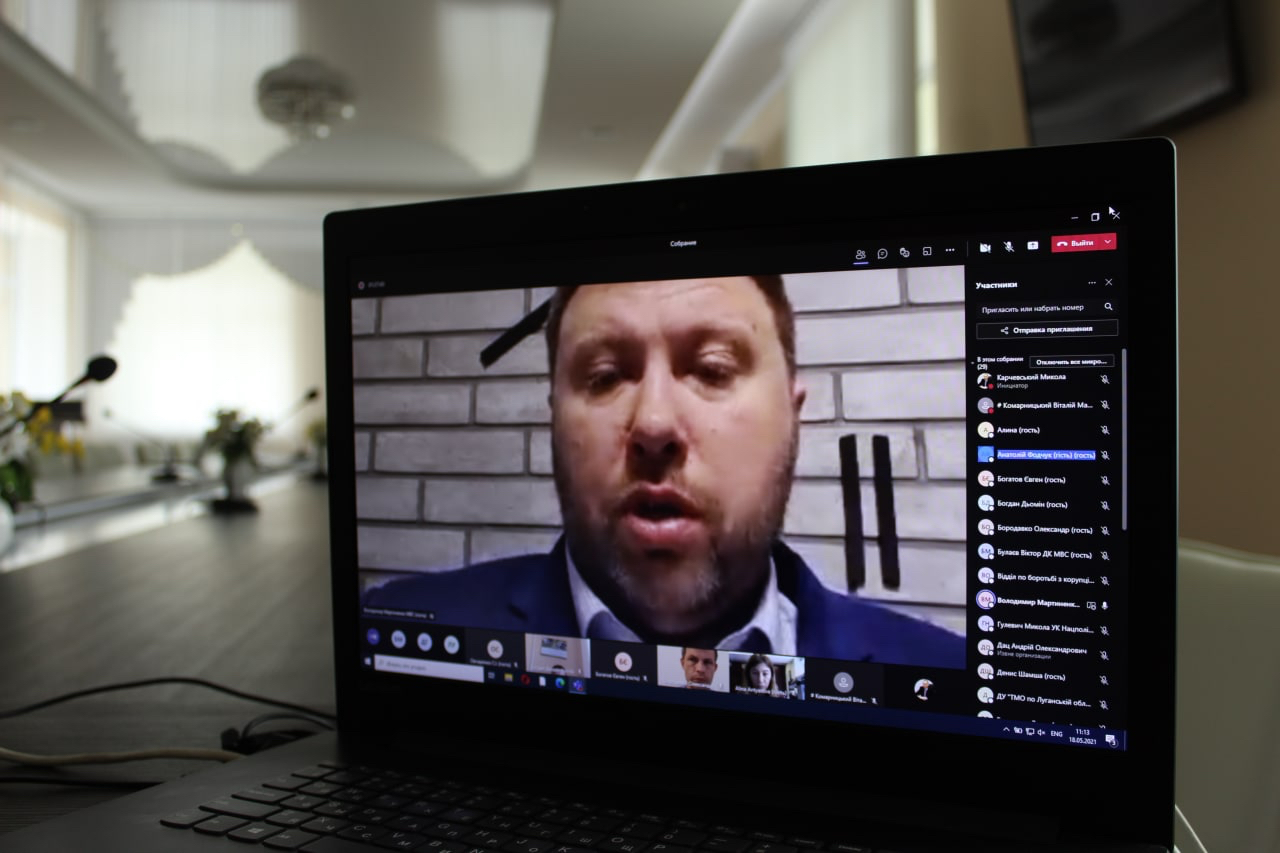
“This spring we held roundtables on anti-corruption issues at Odessa University of Internal Affairs and Dnipropetrovsk State University of Internal Affairs. In contrast, today's meeting is notable for the fact that it is also taking place within the framework of the Open Government Week, which is held at the initiative of the Steering Committee of the “Open Government Partnership” Initiative from May 17 to 21 in the countries participating in the Initiative”, — said Volodymyr Marr Tinynenko.
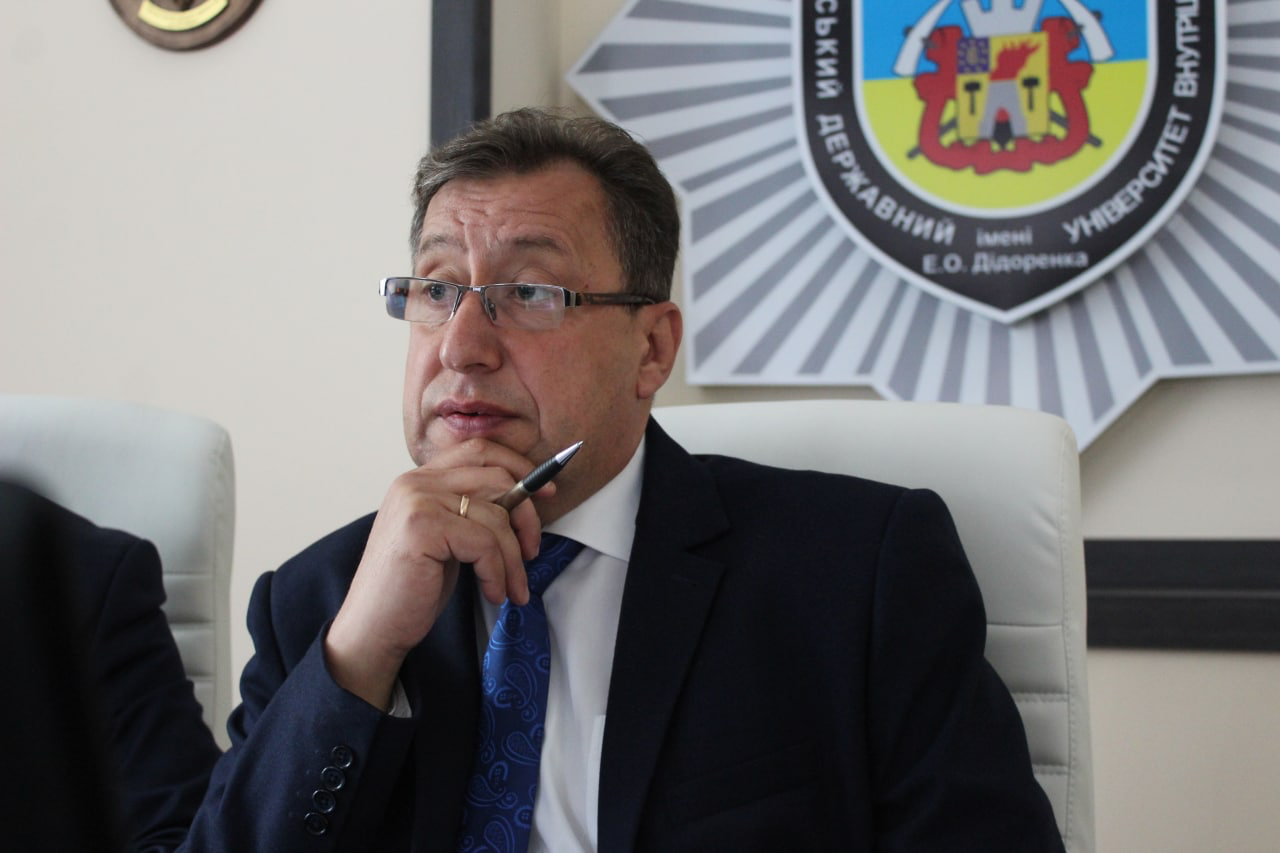
Vitaliy Komarnytskyi, rector of the Luhansk State University of Internal Affairs named after E. O. Didorenko noted that the issue of combating corruption needs to be discussed in order to improve legislative and practical mechanisms, because overcoming this negative social phenomenon is, in particular, one of the requirements for Ukraine's accession to NATO.
According to the organizers, the round table was joined by scientists and anti-corruption commissioners of regional units of the bodies of the Ministry of Internal Affairs, representatives of the apparatus of the Ministry of Internal Affairs, institutions of civil society and the media. Representatives of the Consultative Mission of the European Union to Ukraine, the Secretariat of the Cabinet of Ministers of Ukraine, the National Agency for the Prevention of Corruption also took part. Such a composition of participants allowed to comprehensively approach the discussion of corruption risks and ways of preventing and countering corruption in the activities of police, in the work of service centers, expert service, migration service, emergency services, departmental medical institutions; analyze the mechanisms of reporting corruption and carry out an inspection the practice of corruption offences.
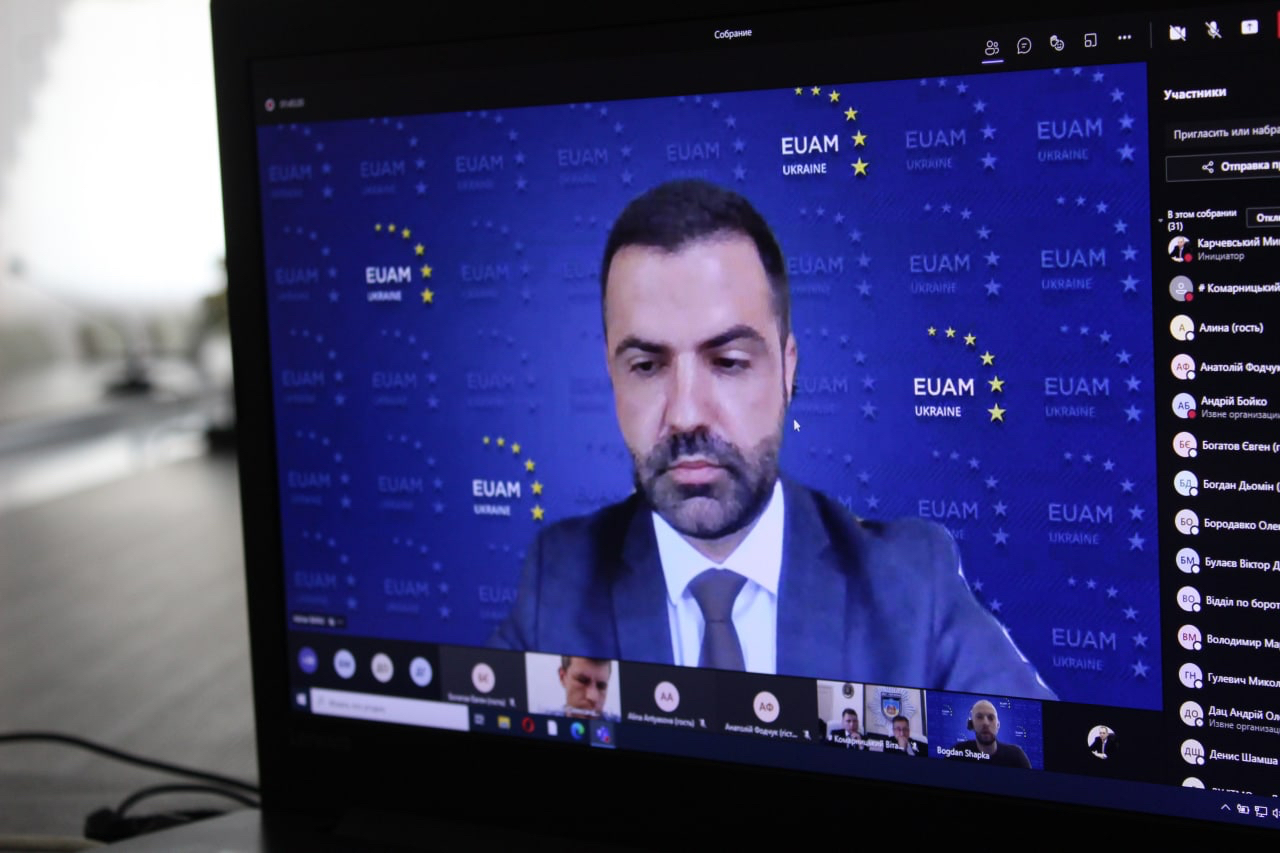
As Adrian Banu, the ICRC's anti-corruption adviser in Ukraine, stressed that building a strong state is possible only if effective and corruption-free law enforcement agencies operate, first of all, the Ministry of the Interior, which in fact plays one of the most important roles in this process. Adrian Banu noted that the Mission has been fruitfully cooperating with the Ministry of Internal Affairs since 2014, in particular in the anti-corruption sphere, and assured that this cooperation will continue. Separately, he noted that the ECSC supports initiatives on the application of a mechanism for managing corruption risks, which allows the formation of a systemic nature of the fight against corruption manifestations.
In turn, the head of the Department of Corruption Prevention of the Ministry of Internal Affairs Anatoly Fodchuk noted that discussions during anti-corruption roundtables are effective. After all, on such sites, urgent current issues are voiced, which allows you to keep track of the pulse, respond in a timely manner to new challenges and minimize the consequences. According to Anatoly Fodchuk, such work is part of preventive anti-corruption activities in the system of the Ministry of Internal Affairs, which gives obvious positive results. Thus, in 2020, compared to 2016, the number of violations of anti-corruption legislation in the department significantly decreased.
Among other issues, the participants of the event paid attention to the work of anti-corruption commissioners, in particular in the context of open armed conflict.
“The anti-corruption commissioners are, in fact, an army in the field of pain with corruption. Therefore, the principles and mechanisms of their activities should be as clear as possible. Only then will it be possible to create conditions under which corruption will not be comfortable in Ukraine,” Volodymyr Martynenko is convinced. First of all, in his opinion, the work of anti-corruption commissioners in the region where military operations are ongoing should be effectively organized.
The proposals voiced during the discussion will be summarized and provided in the form of recommendations to the Ministry of the Interior.
Department of Communications of the Ministry of Internal Affairs




